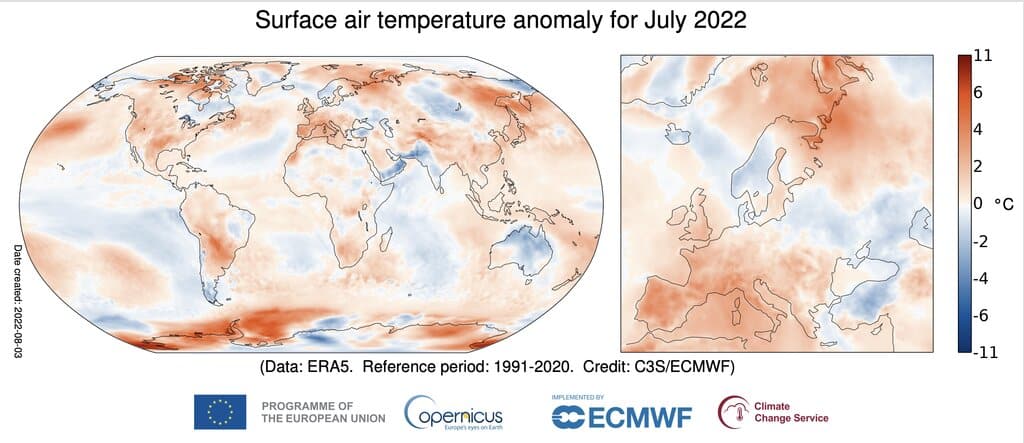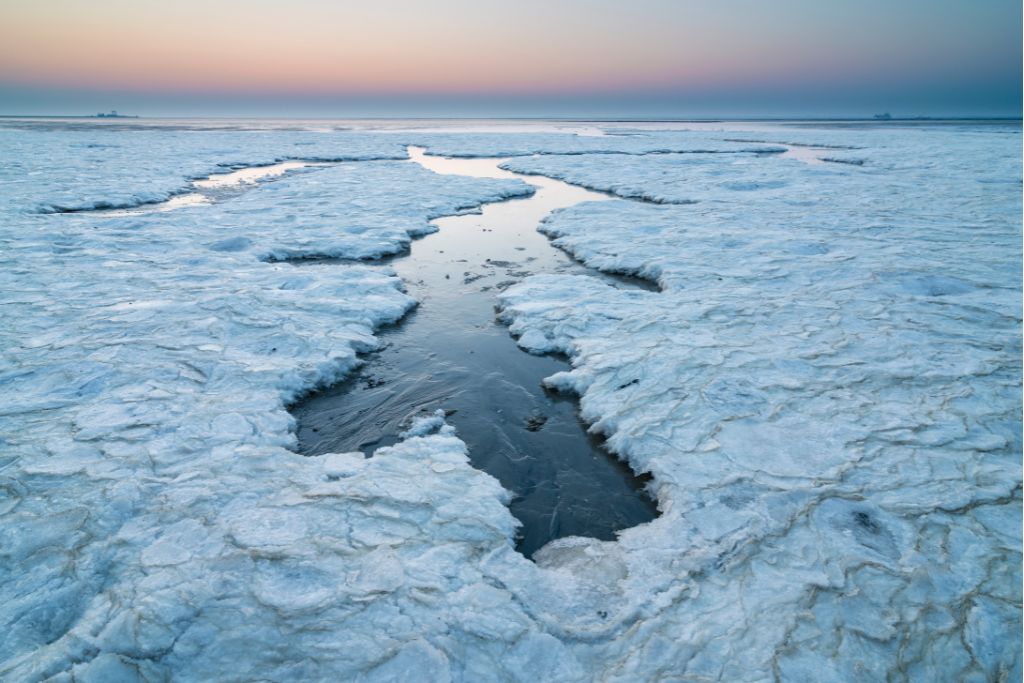Arctic heating rates occur much faster than commonly thought, with the region becoming increasingly vulnerable to human-induced global warming, new research found.
—
Scientists have warned that, in the last 43 years, the Arctic has warmed nearly four times faster than the rest of the planet, contrary to the most recent landmark Intergovernmental Panel on Climate Change (IPCC) which estimated that the polar region was warming ‘only’ around twice as fast.
The new study, published last week in the journal Communications Earth & Environment, suggests that current climate models underestimate Arctic heating rates, which could be occurring much faster than commonly thought.
The four-fold warming rate in the polar region, called Arctic polar amplification (AA), is due to the loss of snow and ice. This phenomenon accelerates warming by reducing the white surface cover that reflects the sun’s rays back into space.
“That’s why the temperature trends are the highest [in] those areas where the sea ice has declined most,” explains Mika Rantanen of the Finnish Meteorological Institute, one of the authors of the study. But the underlying reason that the planet is heating up is human-induced global warming.
You might also like: Indigenous Climate Justice in a Warming Arctic
The research comes as the parts of the globe experienced record-breaking temperatures during what the World Meteorological Organization (WMO) described as one of the three hottest Julys ever recorded. Last month, global temperatures were close to 0.4C above the 1991-2020 reference period. Some countries saw highs of 40C for the first time, including the United Kingdom.
In the Barents region, an area between northern Norway and Russia, the annual average temperature climbed by as much as 2.7C (4.9F) each decade in the past two to four decades, making it the fastest warming area on the planet.

Image 1: Surface air temperatures, July 2022 (WMO)
The Antarctic sea ice is also shrinking due to rising temperatures in the Bellinghausen, Amundell, and Weddell seas. According to the WMO, the Antarctic sea ice extent reached its lowest value for July in the 44-year satellite data record, at an average of 15.3 million km2, 7% below the 1991-2020 average for that month. Arctic sea ice extent was 4% below average.
Arctic warming has potentially devastating consequences for other parts of the world, including North America and Europe, as scientists warn that it could change weather patterns and thus also affect the migration of marine species.
“Larger meanders connected with rapid Arctic warming and melting mean that weather conditions in North America and elsewhere around the Northern Hemisphere tend to linger longer, creating more prolonged heat waves, droughts, stormy periods, and cold spells,” explained Dr. Jennifer Francis, Acting Deputy Director and Senior Scientist at the US Woodwell Climate Research Center, in an interview with the Indian Express.
You might also like: Possibility of Human Extinction Still “Dangerously Unexplored”: Study


















